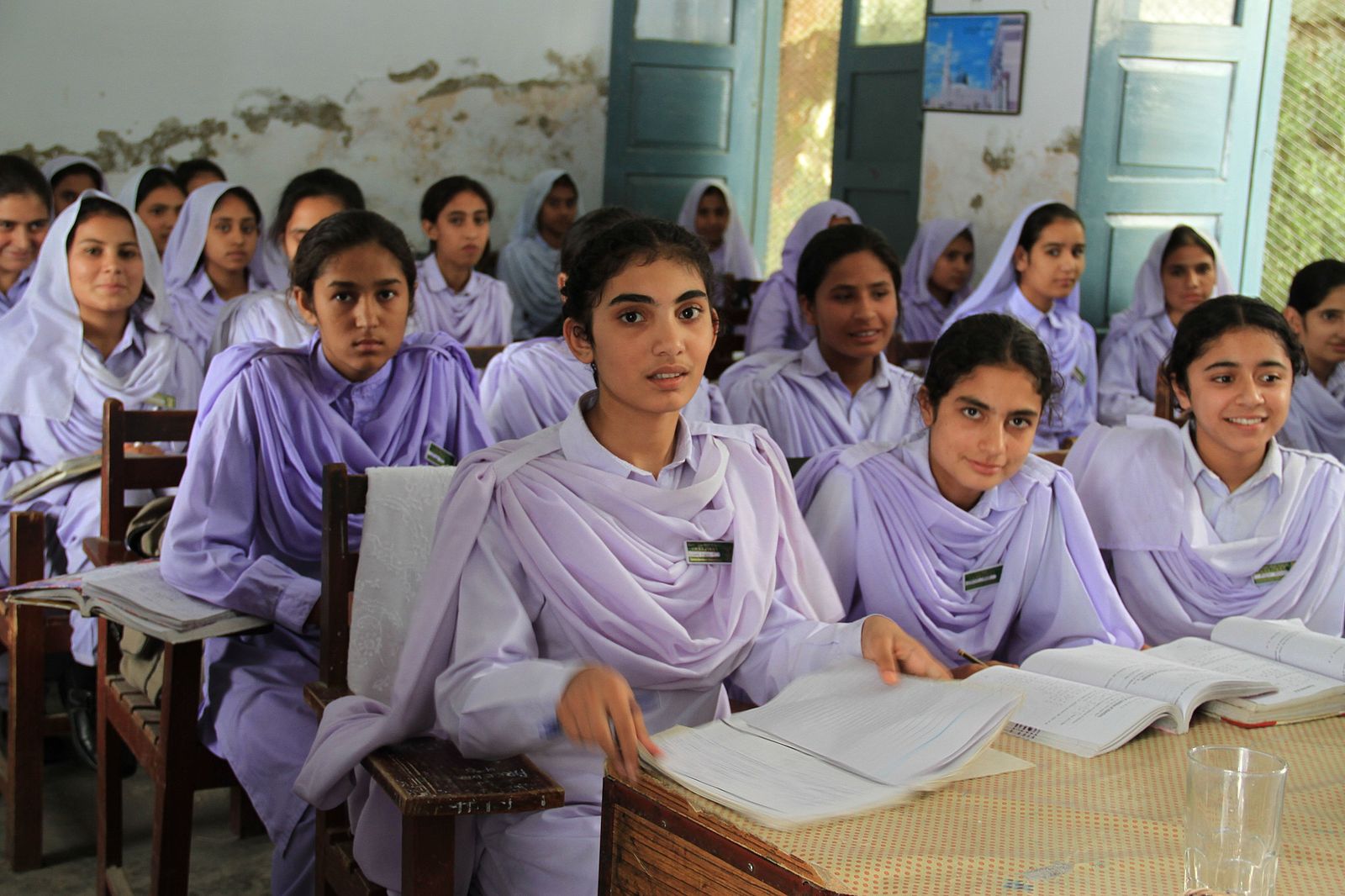Pakistani minorities are fighting religious discrimination in schools
Girls study in a classroom in Khyber Pakhtunkhwa, Pakistan. Photo by Vicki Francis/UK Department for International Development.
Pakistan’s largest province, Punjab, is introducing educational reforms that could improve access to schools and colleges for Christian, Hindu and other religious minorities in the Islamic parliamentary republic, where nationalist Islamic history permeates every school subject from languages to science.
Pakistan has the second-highest number of children out of school – 22 million—behind only Nigeria, according to government statistics and Human Rights Watch. A lack of government middle schools causes many children to drop out after the primary level. Most children out of schools are girls, as publicized by Malala Yousafzai, the Nobel Peace Prize winner who survived a bullet to her head for her activism pushing for Pakistani girls’ right to education. Religious minorities have just as great or even bigger challenges, as Asia Bibi’s blasphemy case highlighted.
Punjab will begin reserving spots for religious minorities in higher education and allow them to study their own faiths in school, the country’s minister for human rights and minorities, Ijaz Alam Augustine, announced recently at a symposium of minority rights activists.
Peter Jacob, chairperson for the voluntary association People’s Commission for Minorities Rights, which has recommended education reforms to the government since 2005, is disappointed that the new policies don’t address the underlying discrimination of the school system.
Minority students opting out of Islam have to study 10 different religions in an ethics class, but in practice, many schools don’t offer ethics and instead require everyone to study the Quran.
“Not only do you have one religion compulsory for all students to learn, you receive extra marks on the basis of the ability to memorize passages from the Quran,” Jacob said. “This presents a monolithic picture of society that doesn’t accommodate diversity. It also means looking down upon the other faith traditions and ultimately results in intolerance against the minority groups, whether teachers or students.”
Hindu and Christian students are often bullied and humiliated in classrooms, occasionally killed for their beliefs seen as either Indian (Hindu) or Western (Christian).
Punjab released its new education policy draft Feb. 22, after the national government under Prime Minister Imran Khan – a cricket star who campaigned on promises to improve education for even the most marginalized – introduced a policy draft on Nov. 28. The new national framework aims to unite the current system of public schools, madrassas (Islamic schools) and English-medium private schools onto one uniform syllabus.
But that syllabus includes public school textbooks that promote intolerance of non-Muslims. Disputed facts are often presented as settled history, and peaceful nation-building efforts of non-Muslims in the creation of Pakistan are ignored.
In 1947, after independence from the British, Pakistan’s leaders debated which language to teach in schools and how to include various ethnic and religious groups cohesively. But by 1959, Pakistan’s leaders had landed on an educational policy that was decidedly Islamic, intentionally creating a national identity based on Islam.
Despite Khan’s rhetoric about creating a “progressive” Pakistan, his party (PTI) has coalesced to conservative right-wing Muslim groups like Jamaat-e-Islami to delete curriculum content related to Pakistan’s non-Muslim history and even photos of women with their heads uncovered, according to Wilson Center fellow Nazia Naviwala.
For example, one sentence in a tenth grade book reads: “Because the Muslim religion, culture and social system are different from non-Muslims, it is impossible to cooperate with Hindus,” according to a report by the U.S. Commission on International Religious Freedom.
“A review of the curriculum demonstrates that public school students are being taught that religious minorities, especially Christians and Hindus, are nefarious, violent, and tyrannical by nature,” the 2016 report concluded, noting that significant improvements in the syllabus have been made since 2011.
The question for Pakistan’s government now, Jacob says, is whether they will keep their stated commitments in support of minorities. The national and Punjab education ministries are expected to pass the policy drafts sometime this year.
“We just hope our concerns will be heard,” he said.

